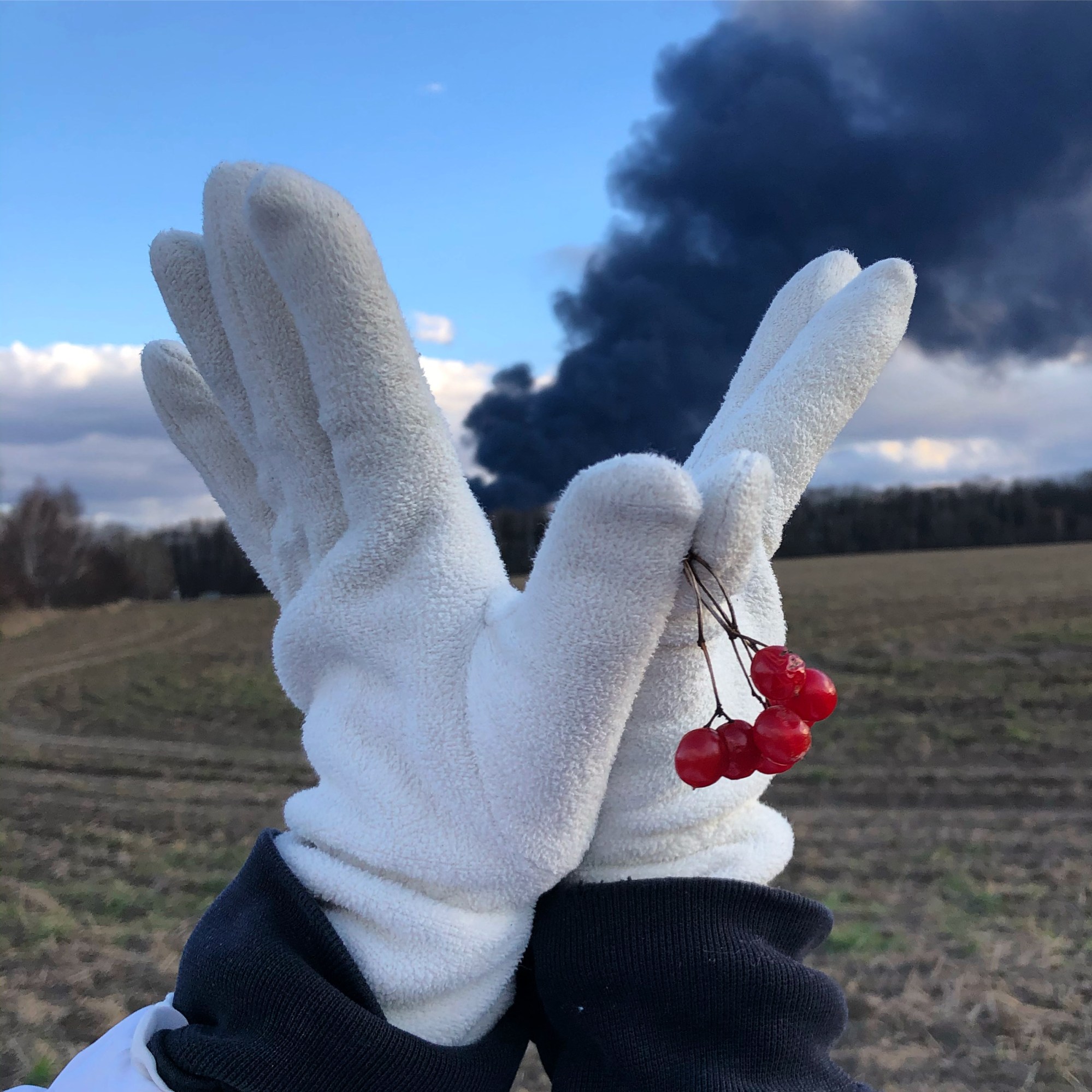Whether you work in – or are a fan of – fashion, you’ll remember the social media feeds you scrolled through in the week following February 24th 2022 as some of the most absurd in recent memory. At the height of Milan Fashion Week, run-of-the-mill posts fawning over Julia Fox’s appearance at the Diesel show, and Kim Kardashian’s at Prada were interspersed with footage of rocket strikes landing in major cities across Ukraine – a confirmation of the worst-case scenario that had ominously lingered over news headlines over the preceding weeks. Russia had launched a full-scale invasion of its neighbour.
The clash of these two disparate realities spawned a number of well-meaning, though understandably heated conversations around the fashion industry’s responsibility to take a stand on the war. Though some argued that the continuation of fashion weeks in the face of the unfolding tragedies was gravely insensitive, the shows went on. It was hardly business as usual, though. From Giorgio Armani to Nanushka and, perhaps most memorably, Balenciaga, brands used the attention that their shows naturally drew to spotlight the severity of the situation, and firmly declare their support for Ukraine, its people and their struggle.
In the wake of fashion week, we’ve also seen almost every major luxury fashion business – think: LVMH, Kering, Prada, Chanel, Hermès and more – announce a total pause on their Russian operations, an extension of widely-called-for economic sanctions against the nation aimed at putting a squeeze on the cashflow to Putin’s bloodstained coffers.
While these actions exemplify the measures taken by the global fashion industry to draw attention to the invasion and its increasingly harrowing consequences, the needs and circumstances of the members of Ukraine’s once-thriving fashion industry have been comparatively overlooked. This week, rather than our usual news bulletin, you’ll find a series of interviews with a selection of the designers, stylists, editors, PRs and more that have been driving Ukrainian fashion’s proud ascent. Here, they discuss their current situations, how they’ve been affected, and the help and support they want to see from the global fashion community in their attempts to both sustain and rebuild the ecosystem they’ve committed so much to creating. It’s often said that the fashion industry is a bit like a village – well, now is the time to come to the aid of our neighbours in need. This is the help they’re asking for.
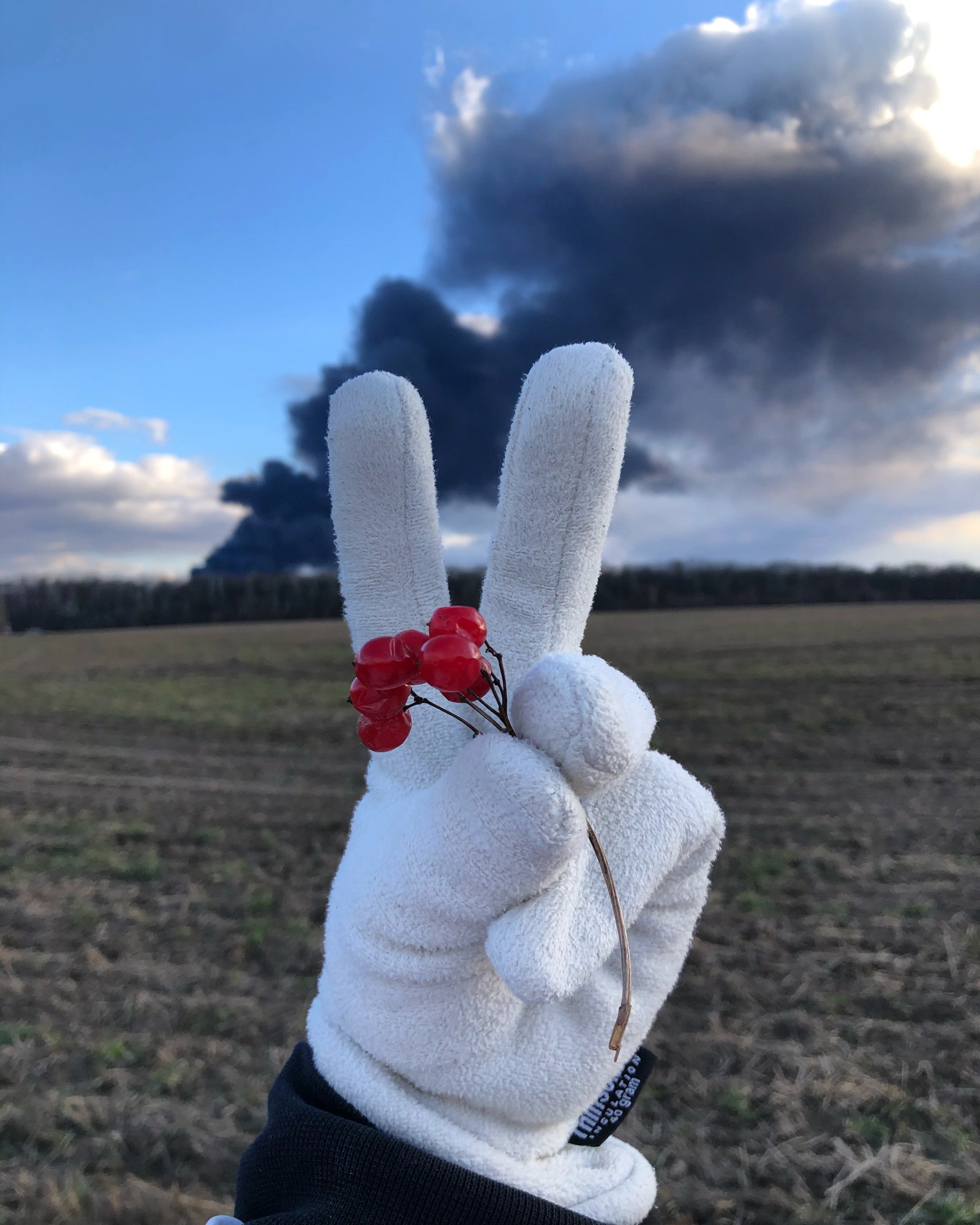
Anton Belinskiy, founder and creative director of Anton Belinskiy
Where are you currently? Are you and your loved ones safe?
We are located near Kyiv, not far from the military base, which is being shelled all the time. Sometimes, when I see fiery flashes outside the window, it feels like I am in a microwave with constant popcorn popping. Frankly, we are safe and not safe at the same time. We’ve gotten used to it within the last few days, though. At the start of the invasion, everyone in Kyiv was hiding out of panic, but now, people are trying to come out, help and put things in order and continue with their business.
Is your business operating in any way? If so, have you changed the focus of your work?
The brand’s production has been stopped for now, but we’ve used that time to think about possible ways to help others through the brand itself. Our business has turned into an organisation for humanitarian help. We are in contact with different people and brands united by a common goal, helping both those who left the country and those who stayed, sewing thermal underwear, and creating collaborations to raise money for those who really need it now. Work goes on, but just in a different direction.
What tangible support can the global fashion community offer the Ukrainian fashion community at this time?
To be honest, I’m ashamed to think about fashion right now because my country is being destroyed and a large number of people are dying. But no matter how painful it is, I try to think about all my friends and colleagues who surrounded me at work: make-up artists, tailors, photographers, musicians. We are trying to help them as much as we can, since every person of our land is an important part of Ukraine. More and more brands, magazines and the like are understanding this and becoming active not only with words but actions too. I hope there will be more of that attitude with each day.
What is your message to the world? What do you most want people to know about what’s currently taking place in Ukraine?
The war is still going on, I just hope the majority of us stay alive. My biggest message to the world is to start with yourself before judging others. Bring peace to the world. And no matter what happens and no matter how painful it is, we need to be able to forgive for our own well being because hate is worse than death. UKRAINE = LOVE ❤️
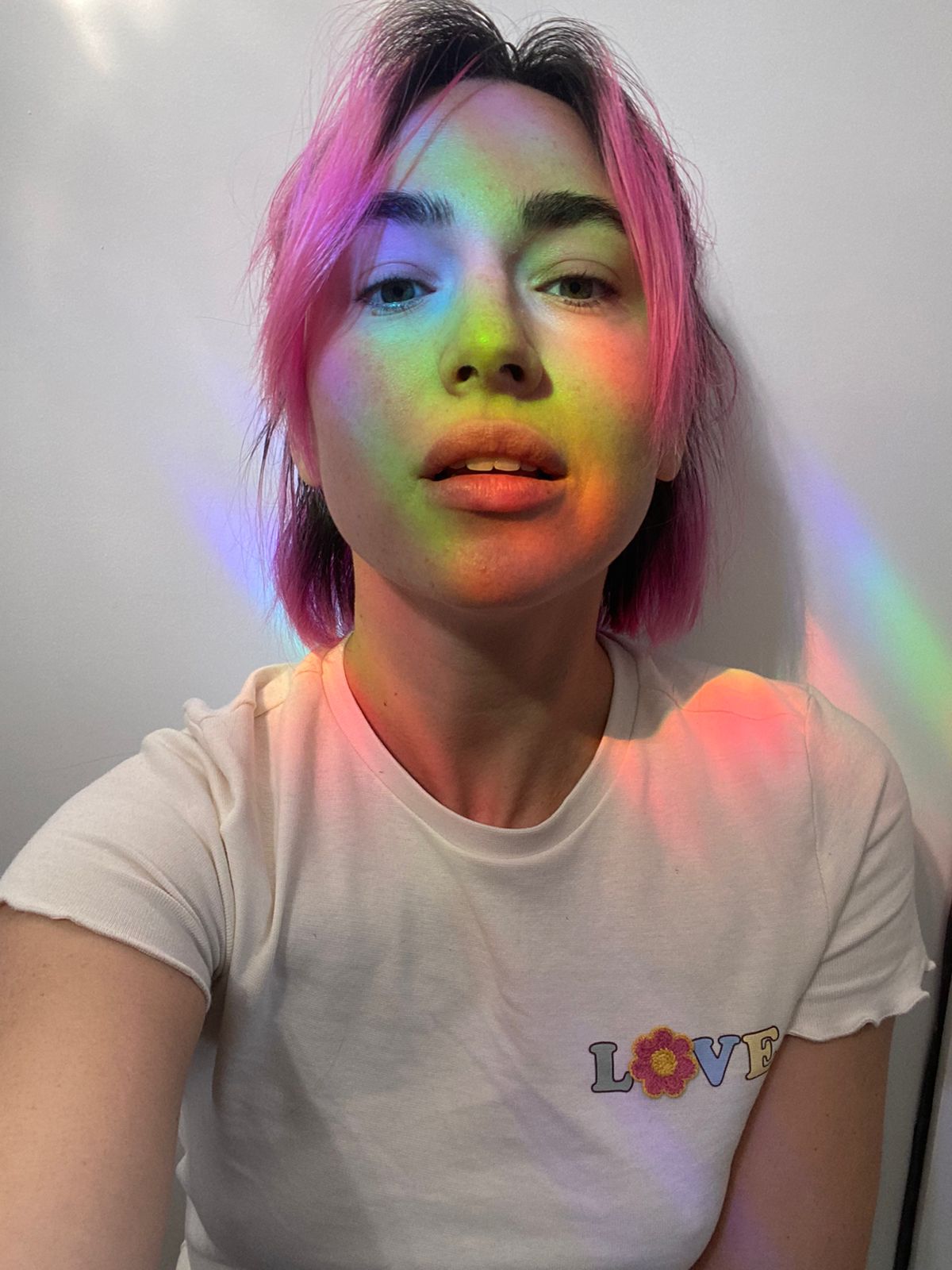
Julie Paskal, founder and creative director of Paskal
How has the war affected your personal situation? And how has it affected your business?
I feel like I have been totally uprooted from my life from my native land. All that I have in my life is not relevant anymore. I’m missing my city, missing my people, missing my land, missing my job. All plans are erased and in general you can’t live when your people are suffering. This pain is always inside. Our cities are under fire; civil people are dying from shells; kids are dying from dehydration in the occupied territories; hospitals and orphanages, oncological centres and monasteries are being bombed. Now, we are also dealing with delivery issues. The offices of all transport companies are blocked, clients are waiting for their orders and stores are also waiting to receive wholesale orders, expanding their shipping windows. We are trying to do our best, communicating internally in the Ukrainian design community.
What tangible support can the global fashion community offer the Ukrainian fashion community at this time?
Help to promote the designers and place orders. I think collaborations could work well — especially as we are doing our best, but our productions are not working in a wartime. Giving a space for our creativity could be great. I mean, I can come up with cool ideas of design which would be possible to embody only in a collaboration with big brands and more elevated businesses.
What support do you think the Ukrainian fashion community will need to rebuild?
Yesterday we were speaking with a couple of designers from Ukraine and came up with the idea to create an association, a foundation for the Future University of Fashion in Ukraine. We have a lot of talented people in creative spheres but we don’t have the proper education for the new generation. We all built our business using only our imagination and intuition but now we have a lot of experience and connections and a lot of people who are keen to help us. In my opinion, the post-war development of the industry in the right format in Ukraine – this is what can be laid now. And asking the international community to help to build this structure to curate and to invest.
What is your message to the world?
Only LOVE can save the world and it definitely will.
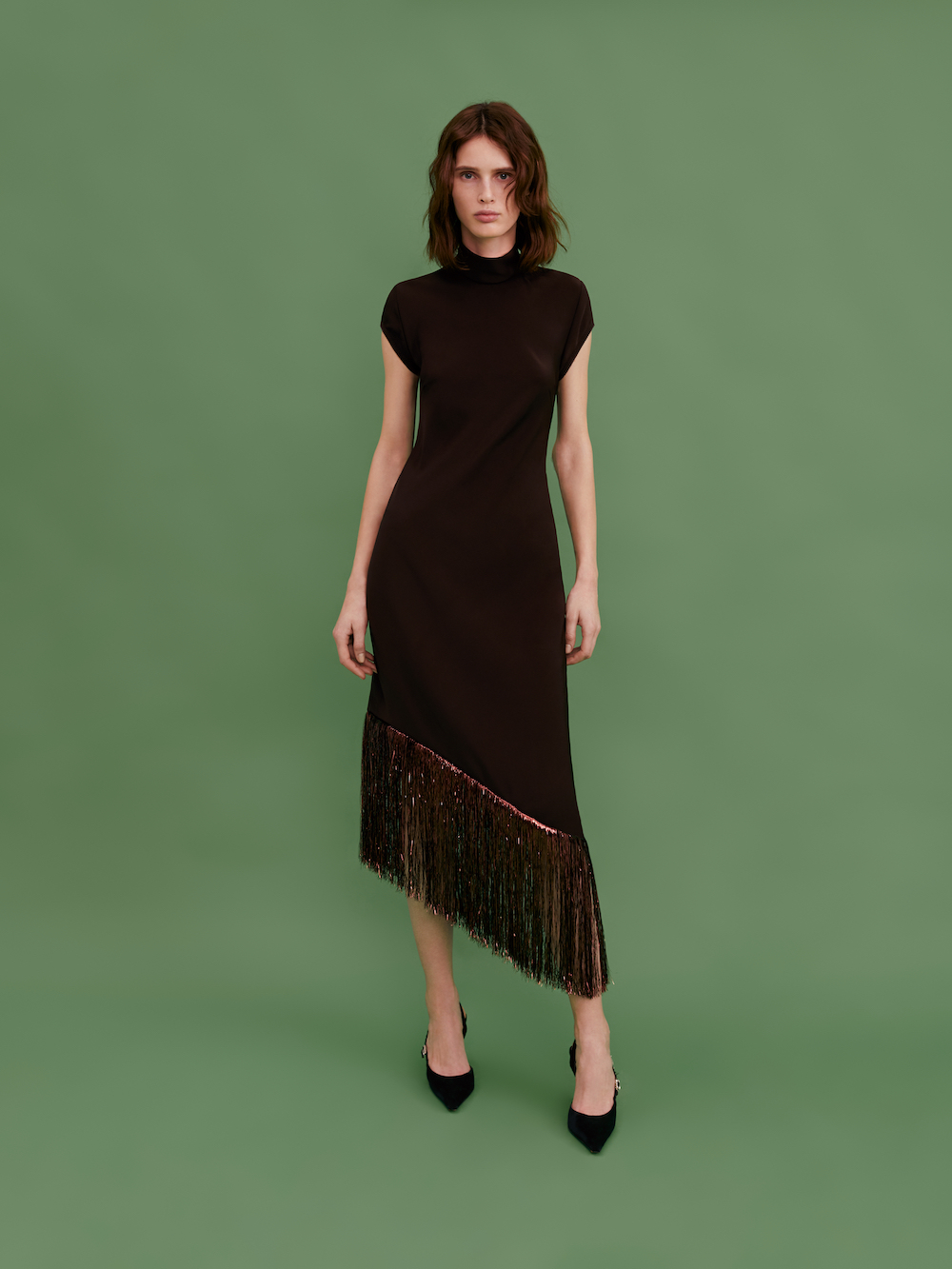
Anna Oktyabr, founder and creative director of Anna October
How has the war affected your personal situation? And how has it affected your business?
I’m experiencing a complete change to my life. I don’t know where I will be living, when I will be able to come back home. Business wise is now better, since I have a team of superheroes and we managed to evacuate the stock out of Kyiv and will continue to deliver orders next week and start the production in Ukraine. I am clear in the fact that sustaining business is crucial now and we are supporting all the families who are behind the production, we are proudly paying taxes in Ukraine and helping the army.
Is your business operating in any way? If so, have you changed the focus of your work?
Yes, my team started to work one week after war started, before they were mainly in the bomb shelters. We have SS22 orders to be delivered and they are working on that, all other times they are helping to evacuate somebody, organising humanitarian support. My website is working and will be delivering orders soon. We donated 40 per cent of all our fabrics — approximately 1,000 metres — to the needs of the army. Cottons for medical needs, wools for making blankets, even silks went for making camouflage nets. I am glad that the fabrics we used to make dresses from can be helpful in this situation. I wish I could donate all the stock if it was all useful.
My own focus is now on completing the designers division at the platform that my friend Julie Pelipas made, the platform to help the Ukraine’s creative community. I understand the needs of my colleagues and want to help them to sustain their brands. We are all in one boat and I want to be useful. Some of them are still in Ukraine and can’t think further about business so I put all my powers into this.
What support do you think the Ukrainian fashion community will need to rebuild?
Creatives will need work to continue delivering their amazing talent and brands and businesses will need funds, sales and promotion. We have talent, we have courage, we will definitely rebuild and become even stronger.
What is your message to the world? What do you most want people to know about what’s currently taking place in Ukraine?
This is the war of all humanity and I want people to act immediately and help stop the war, before it becomes even worse. If you want to donate, please use the governmental websites, or give to kids, the army or the Red Cross. Everybody needs help.
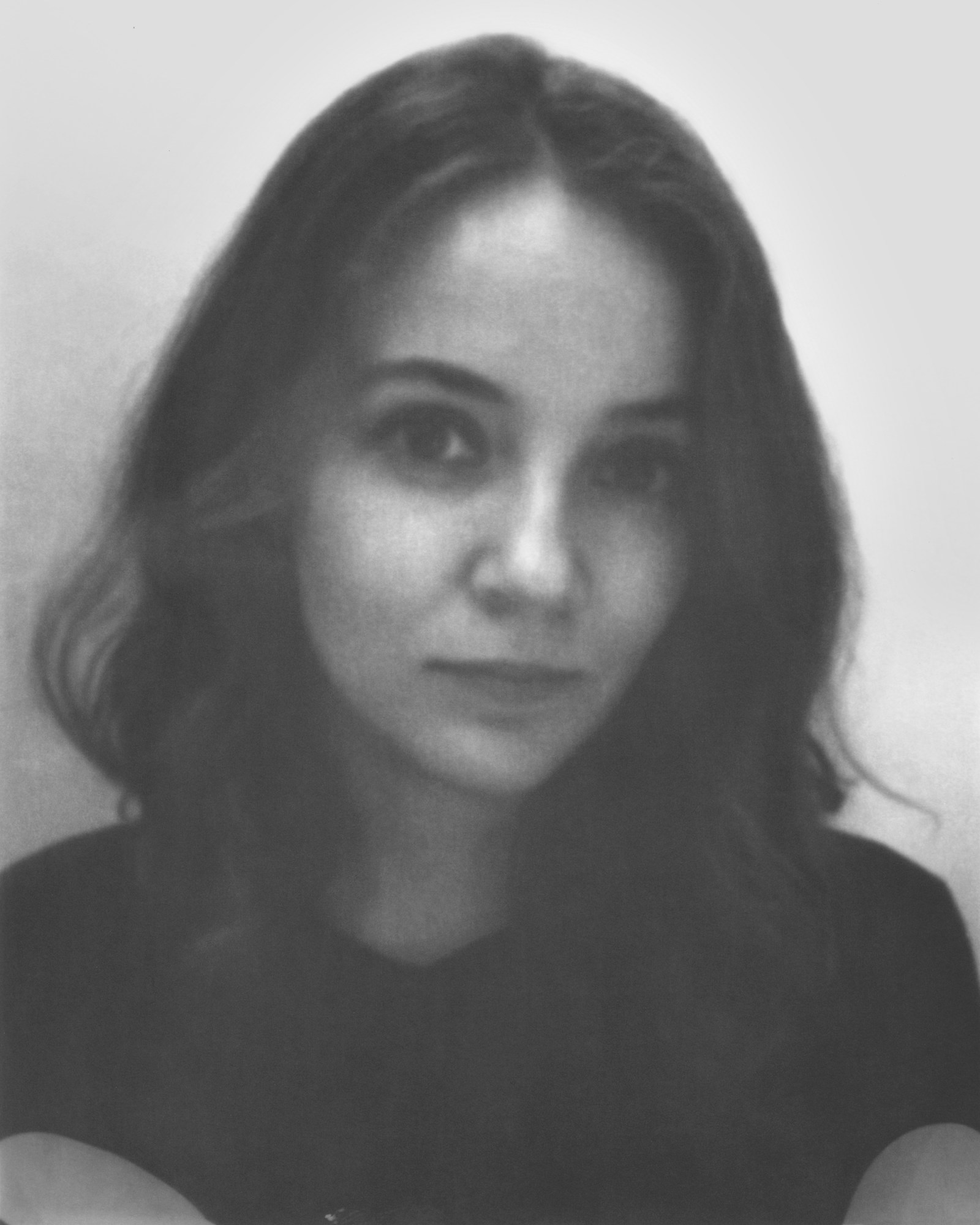
Olya Kuryshchuk, founder and editor-in-chief of 1 Granary
Where are you currently? Are you and your loved ones safe?
I am in London. My whole family is in Ukraine and got split up. I managed to get my mother, little nieces, and nephew out of Ukraine two days ago. My brothers stayed, as did my father, who is defending Kyiv and organising medical aid points.
What support do you think the Ukrainian fashion community will need to rebuild?
Right now, we are witnessing the destruction of our schools, so access to education, mentoring and any kind of knowledge exchange is already a key need.
The international fashion industry has to make sure that there is a bridge that links to the Ukrainian fashion field. Even if stylists, photographers, and fashion insiders at large would take the time to visit, give lectures, and do local projects in Ukraine, that would be a stepping stone for the Ukrainian industry to rebuild what is lost.
What action do you want to see from the global fashion community?
We must stop all trade with Russia. We all should be demanding from fashion companies we work for or with to sanction Russia and defund this war.
It is also vital that we keep talking about what’s happening. We can’t let war fatigue make us silent.
Prior to the Russian invasion, what did your day-to-day look like? And what does it look like now?
It is incredible how the deepest sadness can be galvanised into energy. For many of us, it took a day to mobilise ourselves into action. We all started connecting to build a network of support that could help our families and peers in Ukraine. Now, every day, besides my regular work tasks that still need to run, I am using any skill and connection I have to help. From raising awareness, organising donations, and logistics like connecting organisations with the right warehouses, to individual help for people that ask for it. Reality has changed radically but we have to keep trying. For us, it is about whether our friends and family will survive.
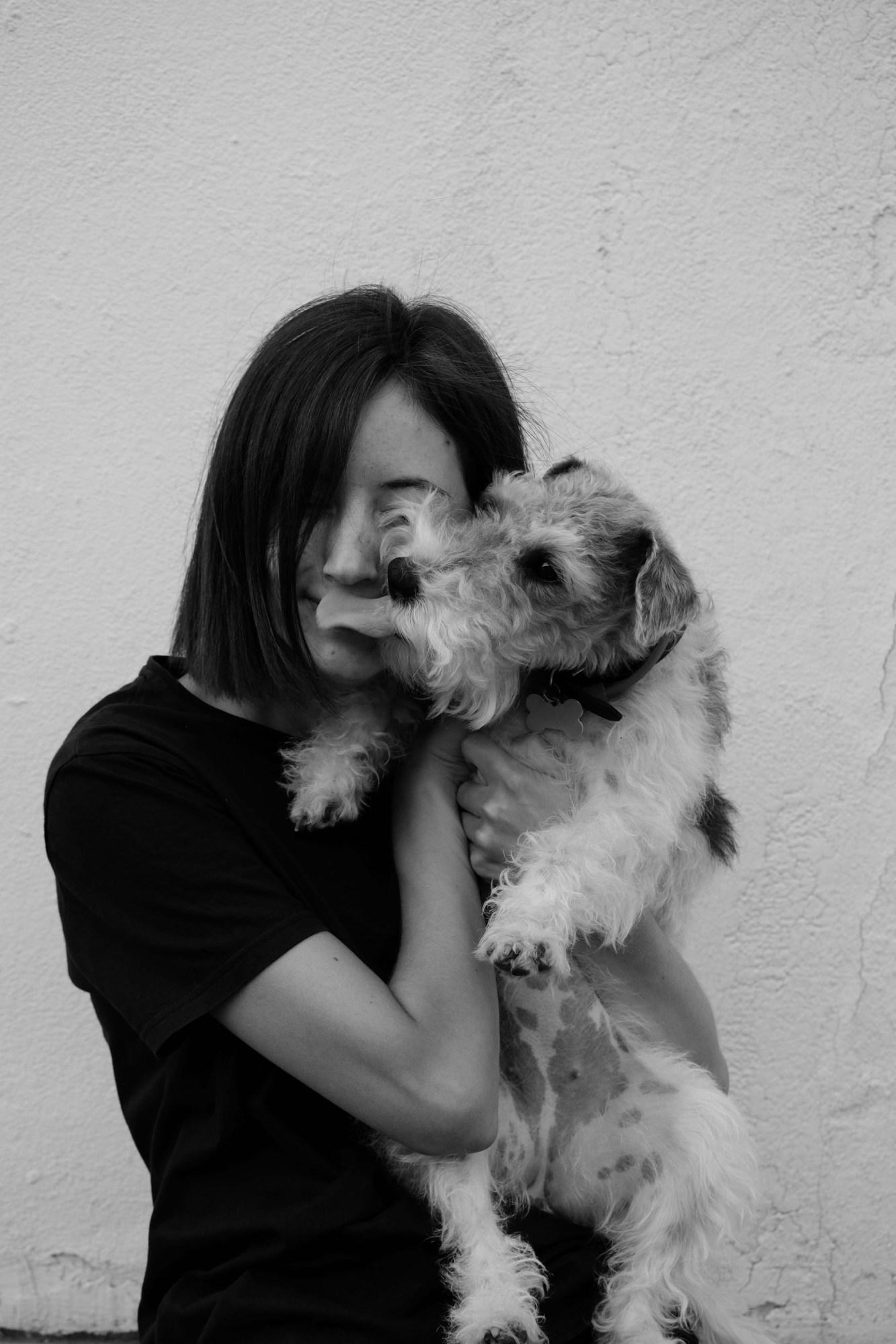
Yulia Yefimtchuk, founder and creative director of Yulia Yefimtchuk
Where are you currently? Are you and your loved ones safe?
This is the second day I am in Poland alone. My relatives are in western Ukraine. Unfortunately, men who have no military experience are not allowed to leave the country.
How has the war affected your personal situation? And how has it affected your business?
For more than 20 days, I do not understand what is happening and why, I have no emotions or desires, only fear. Waking up in the morning from the explosions in Kiev, we had only a few hours to collect the necessary things and my dog, and leave the city to a safer place near Kiev (it seemed so to us then). But we spent the night in the basement of the building while the explosions took place, and we decided to go further. Nobody cared about business, because it was important to save lives. My business remained in Kyiv, but I do not have access to it yet, so everything stopped indefinitely.
Is your business operating in any way? If so, have you changed the focus of your work?
I stopped the business because everything remained in Kyiv. I have not thought yet about how I will resume work, because this requires additional funding, which right now is going to survival and supporting my family.
What tangible support can the global fashion community offer the Ukrainian fashion community at this time?
Many people are now abroad, so I think it is important to support Ukrainians by offering them jobs, such as ordering a photo from a photographer or working with stylists and artists. People who are in Ukraine also need support.
What is your message to the world? What do you most want people to know about what’s currently taking place in Ukraine?
A feeling of safety is the greatest value now. The civilian population is suffering, many people are in the zone of humanitarian catastrophe, they have nothing to eat and drink, they lack medicine, people are in fear of tomorrow, they do not know what to expect and how to protect themselves and their family.
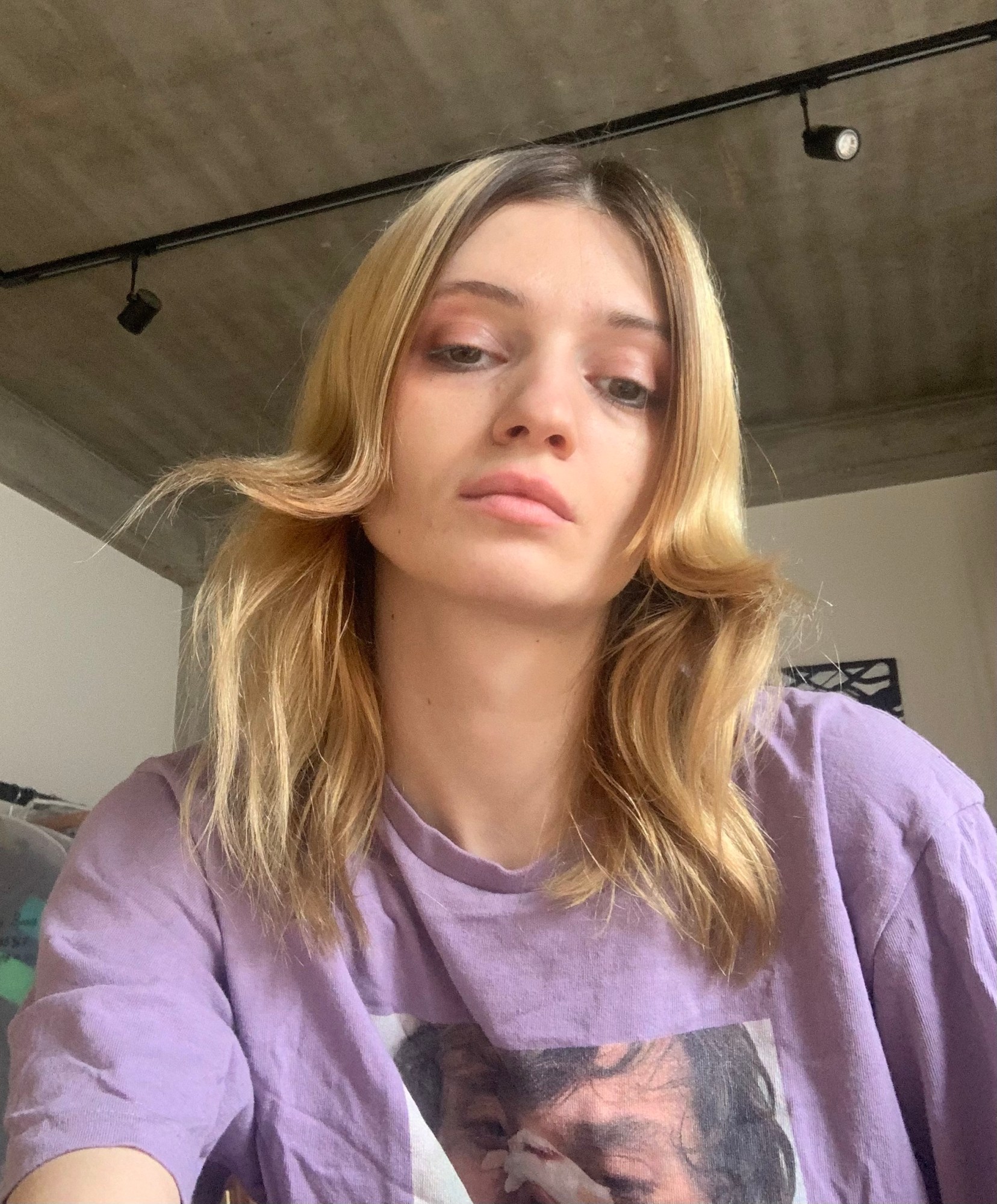
Masha Popova, founder and creative director of Masha Popova
Where are you currently? Are you and your loved ones safe?
I am currently in Brighton, where I can stay as long as I need. My parents are not safe, however. They are still in Ukraine and are hoping for the best, running to the basement a few times a day.
How has the war affected your personal situation? And how has it affected your business?
I spent last year in Ukraine, and had my studio and production there too. I went back last winter during the lockdown for what was meant to be a few weeks, but stayed there for a year. I came to the UK on 2nd of February to shoot my new collection campaign, and was meant to fly back on 21st of February, but my parents suggested I wait a couple of weeks just in case. Three days later, I woke up in the morning and saw missed calls from my dad and messages saying that all of Ukraine was being bombed.
Over the last year, I’ve been slowly building my studio. I invested everything I was earning into various pieces of equipment and materials. It was a dream place. Now I am safe, but all my work and means to work are back in Ukraine and all I have is the collection I brought with me to shoot. Not having a place to work is not even the biggest problem. I don’t have my team with me and all the logistics I had in place are out of the window. I have to start everything from the beginning again.
While it’s very hard to focus on work, I need to work now more than ever. I can’t just stop. I have wholesale orders to fulfil. But instead of placing orders with my factories that were based in Ukraine, I have to start looking for production places again. Before the war began, I was already working on the new collection. Now I am facing operational and cash flow challenges. For now, I think the business will be operating from my boyfriend’s bedroom.
What action do you want to see from the global fashion community?
In the beginning, it felt very surreal. My Instagram feed was a surreal combination of destroyed residential buildings, dead bodies, and the ‘best looks of the day’ from fashion weeks that were taking place as normal. It took some time for the industry to react. Mica Argañaraz created a wave when she donated all of her fashion week earnings directly to organisations that are providing help, refuge and medical aid to those in need on the ground in Ukraine, with Gigi and Bella Hadid then doing the same while continuing to show their support to Palestine. Balenciaga’s powerful show and Demna’s statement felt very honest, as Demna himself went through similar tragic events fleeing the war in Georgia as a teenager. Even emerging designers like Fidan Nevruzova and ANCUȚA SARCA among others got in touch to offer help with transport from the Ukrainian border and accommodation if needed. The solidarity against any kind of violence and injustice is so important.
What is your message to the world? What do you most want people to know about what’s currently taking place in Ukraine?
What is happening in Ukraine is an unspeakable massacre but this war didn’t begin 21 days ago. It started with the annexation of Crimea in 2014, and the war in eastern Ukraine between Russian-backed separatists and the Ukrainian forces. Three weeks ago saw the launch of a full-scale invasion, a violent evil massacre.
Ukraine is not the first country to suffer from the Putin regime. For the past three decades, Russia has occupied Moldova’s breakaway region of Transnistria and launched a conventional invasion of Georgia in support of separatist governments in South Ossetia and Abkhazia before Crimea. Russia also launched a military intervention in Syria.
I am proud of how Ukrainians have united together and of how strongly we resist. We really need global support to win – not just for Ukraine, but for the world.
Vena Brykalin, fashion director of Vogue Ukraine
Where are you currently? Are you and your loved ones safe?
I’m in Paris now. I was very lucky because my trip to the Milan shows were scheduled for the night of February 23rd and the next morning, just 5 hours after I left, the bombing started. I left for a 4-day trip and now I’ve been away from home for 3 weeks. Some of my family are left Ukraine, but most of them are in Odesa, in the south of the country.
Is your business operating in any way? If so, have you changed the focus of your work?
Yes, Vogue Ukraine is up and running. Despite people having to leave their homes and move across the country, we’ve kept working since day one. Some of our people spent the first 5 days sleeping in the underground stations and still managed to contribute. Of course, the print operation is on hold, and we are now looking into spreading our content across other Conde Nast titles. But online we are present and very strong. The remit has changed, of course, and our amazing team has been covering topics of war, humanitarian aid, mental help and legal support. I don’t think we’ve seen anything like that coming from a title like Vogue before, but we are confident this is exactly what we should be doing right now. And our readership appreciates it.
What action do you want to see from the global fashion community?
There are three steps that I think everyone should be doing.
1. Recognise what’s happening in Ukraine for what it is. A war.
2. Support the Ukrainian economy and Ukrainian businesses in whichever capacity feels right. Whether it’s donating money or sending humanitarian aid, any help matters.
3. Give opportunities to Ukrainians who are available to work. Book our models, cast our talents, commission our artists. Help them to carry on and be able to support their families in Ukraine is, In the end, it’s about saving their lives.
What support do you think the Ukrainian fashion community will need to rebuild?
The scale of damage that Russian invasion has caused can’t yet be evaluated. But this war has already affected generations of people and we will be dealing with the consequences of it for years, if not decades. While donations and messages of support are great, we need to look at how we can build systemic and institutionalised help. Everyone I know is trying to work this out, with my fellow colleagues creating platforms to connect Ukrainian creatives with companies, looking into how educational institutions can support our talents and so on. It will be great to see brands committing to supporting us and giving people opportunities to work and build their careers.
What is your message to the world? What do you most want people to know about what’s currently taking place in Ukraine?
Don’t feel sorry for us. Support us.
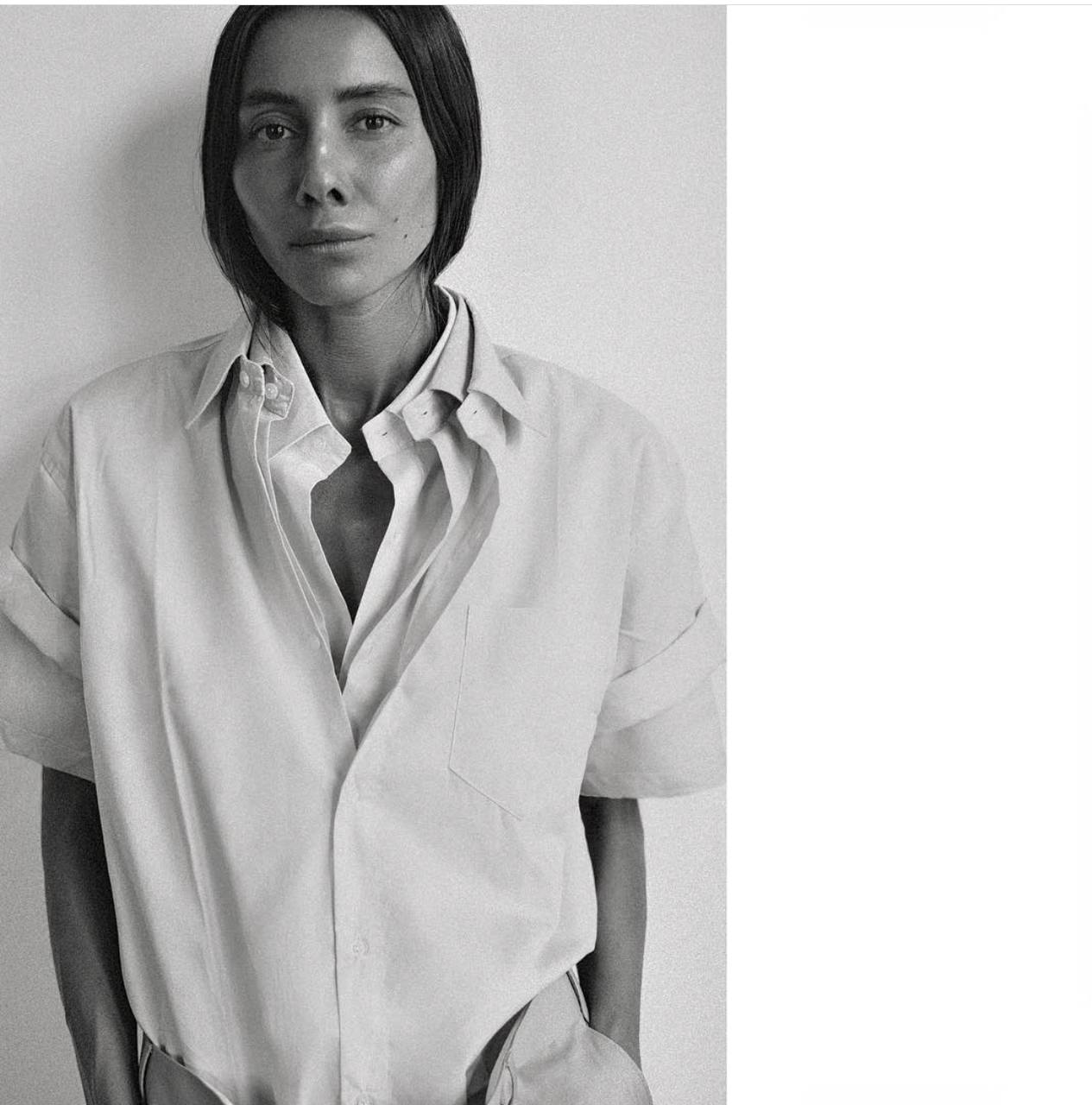
Julie Pelipas, fashion director of Vogue Ukraine and founder of Bettter
Where are you currently? Are you and your loved ones safe?
I’m in London with my kids and husband. We’re safe here, of course, but my big Greek family (we’re Pontic Greeks, who have historically inhabited Eastern Ukraine and the Black Sea shores) — my sisters, brothers, aunties and nephews — are all now in Mariupol, my hometown, where the most horrendous airstrikes and attacks have continued since Day 1. The officials say that almost 90 per cent of all buildings are destroyed. Information on casualties is not available due to constant Russian artillery strikes. It’s nearly impossible to start a rescue operation. So, it’s quite weird for me to declare that I’m safe, while my family is in absolute danger.
Before the war, what did your day-to-day look like? And what does it look like now?
I had a dream to develop an upcycling system that will help the fashion industry rework deadstock and discarded clothes globally. In Kyiv, we built our research and development and I was planning to scale this further. Now, my whole team has to flee to various countries and I’m working on setting them in one place, so that we will be able to keep working on the project. Our R&D lab and production with all the deadstock we’ve managed to source is unfortunately stuck in Kyiv, and we’re just praying it won’t get bombed.
Is your business operating in any way? If so, have you changed the focus of your work?
I’m trying to pay salaries to all my workers, since I’m very well aware of the horrible situation they are all in. But I’m not sure I’ll be able to do so for long due to frozen business processes. Right now, me and my team (mostly on operations and media sides) are busy building a platform for the creative community from Ukraine.
We created Bettter.Community to keep the vibrant Ukrainian creative scene alive and thriving. The list of creatives in our community is vast and includes graphic designers, photographers, 3D designers, stylists, and artists. Our goal is to showcase Ukraine’s top creatives in various fields to international media, agencies, associations, public institutions, and many more. We aim to help these creatives to be hired in either full-time or commission-based positions. Aside from putting together the database of creatives and their portfolios, Bettter.Community also supports them with grants of 500–3,000 EUR to cover legal and relocation expenses and help them find jobs.
What tangible support can the global fashion community offer the Ukrainian fashion community at this time?
I believe the fashion community can not ignore politics, especially when it comes to such a phenomenal disgrace of humanitarian rights. We are a part of the global cultural landscape and we should act accordingly on all levels. Fashion is our field of fight. The community should remain vocal. We should loudly declare our statement on war. Secondly, we should unite our forces in order to bring real help to those who were supposed to live the same normal lives before this nightmare begun. This means offering jobs or commissions, as this will help in the long-term. Financial support is also important, and if not directly, then through any possible PR, networking or events calling for action from a bigger audience. Help the Ukrainian creative community integrate into the international community with real empathy and support. Consider us as colleagues, not as refugees.
To rebuild the Ukrainian fashion community will need support on three basic levels:
Humanitarian support
- Money for the evacuation of the team members.
- Places to stay/money to stay at least for three months for designers and team members.
- Money for food for team members.
- Clothes to wear for team members.
Collaboration/sources support
- A studio/office with a warehouse in a country with the best tax climate.
- Assistance (or a team member) for online stores to continue operating with online store sales.
- The promotion of collections in the press and through opinion-makers to build a strong image.
- PR agencies for promoting collection.
- Pop-up stores to sell the stock.
- Studio/teams for shoots.
Legal support
- Consultancy on taxes/legal situations.
- The arrangement of the correct business status for governmental support with a lawyer and embassy.
- Help with setting up a bank account in a new country or finding ways to send money to designers.
- Organisation of logistics for delivering the existing and future orders, as well as the provision of special prices from transport companies.
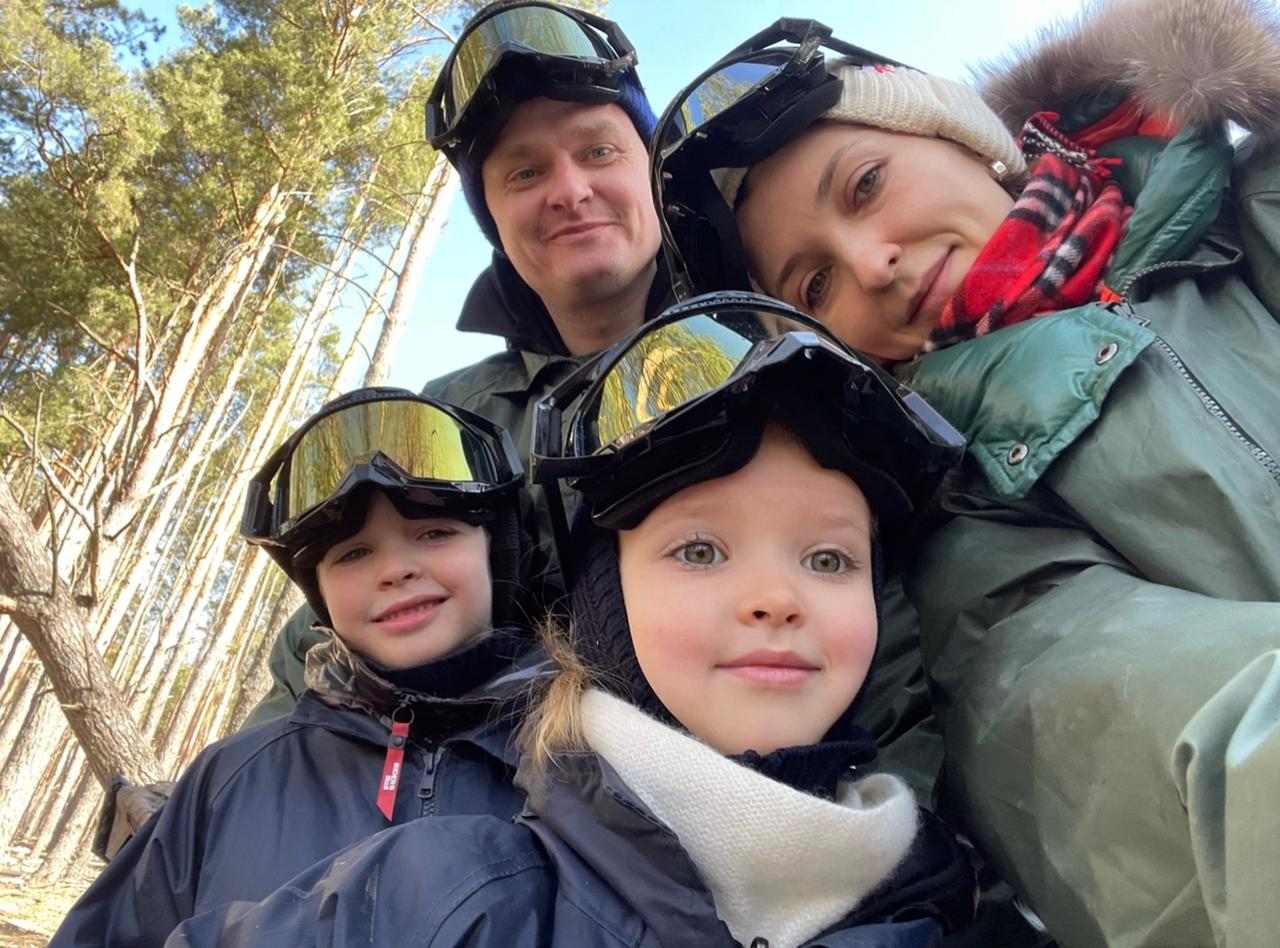
Kristina Kavitskaya, creative director of Helen Marlen
Before the war, what did your day-to-day look like? And what does it look like now?
Before, it was a regular workday, starting with a cup of coffee. Kids went to school, I went to the office or worked from home. Daily meetings in zoom with the team. Going through my to-do list. Just a typical day. Every day of the last weeks started with only one message to all family members “How are you?”. Nothing was more important than receiving the answer to this question. We reformatted our Instagram account from fashion to the source of helpful information in current realities.
Is your business operating in any way? If so, have you changed the focus of your work?
Unfortunately not. We are an omnichannel company with e-comm, but we have all our stock in Kyiv. Today, we proceed with the negotiations with our partners to help them with humanitarian aid logistics to Ukraine. Also, we asked to cancel our Spring Summer and Fall Winter 2022 orders and freeze our deposits for the following orders. Now we are just in the process of rethinking our work model to save the business and workplaces.
The war will end, hopefully soon. But, it won’t go back to normal that fast. So, it’ll be a different reality for customers and us. We’ve passed several revolutions in Ukraine and can presume that it’s harder to keep the middle segment in fashion work. At the same time, luxury brands stay in a more safe position during challenging economic times.
What action do you want to see from the global fashion community?
First of all, this message is for some well-known brands: The Ukrainian market is not the Russian market! Finally, it’s time to understand and remember it. We receive work emails from the brands addressed to the Russian market. They include us as a part of this communication, not seeing the difference in our countries. Some give the rights to represent their brand to the Russian distributors, including Ukraine, as a part of the region. So it always was hard for us to make brands understand that there was a war in the east of Ukraine with Russia and that we couldn’t be partners with them.
What support do you think the Ukrainian fashion community will need to rebuild?
First of all, make discounts but not extra costs. Usually, Ukrainian retailers had higher buying prices when buying in the rest of the world. When we were ordering DSquared2, I expediently saw prices for the items for another retailer in Germany. I asked why it was so and received an explanation that this is European prices.
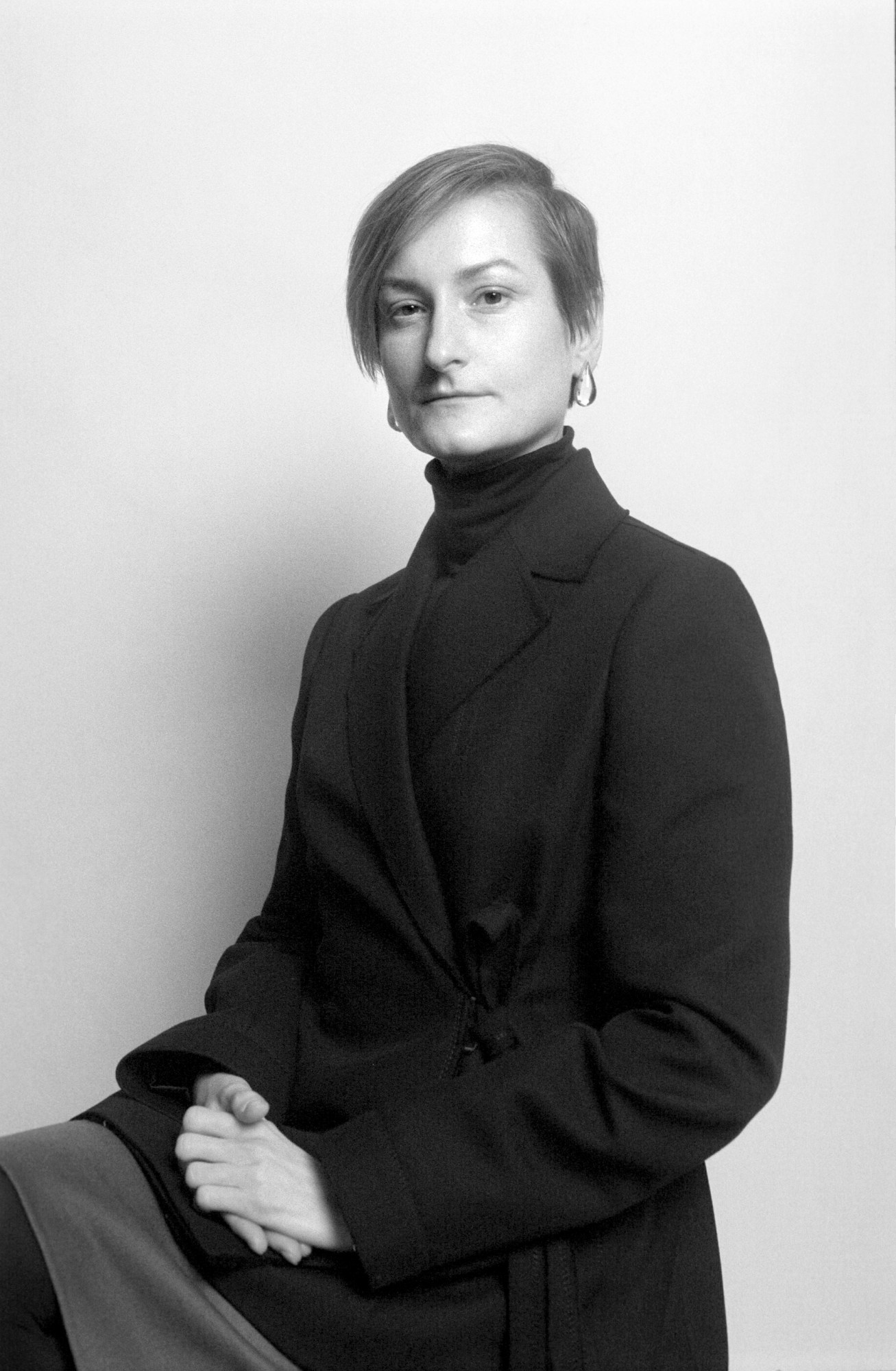
Tetyana Solovey, editor-in-chief of Buro. Ukraine
Where are you currently? Are you and your loved ones safe?
I’m in London. Last year I was selected for the Chevening Award; currently studying for a Master’s program at Goldsmiths, University of London. I’m safe, but my family is not. My niece is in the besieged city of Mariupol, a city that has been under intense Russian shelling for 16 days. It has been five days since we last heard from her. She’s spent all her time in the shelter, and when we last had contact, they were running out of food. My brother is in Donetsk, a city in the east of Ukraine, occupied by Russians since 2014, unable to escape and evacuate our family. I can not imagine how my brother is feeling, so I’m not bothering him with questions. I regularly check on our messenger chat to see when he was last online.
How has the war affected your personal situation? And how has it affected your business?
Now more than ever I value the opportunity to be in the UK, under a peaceful sky. Some of my friends and colleagues are still in Kyiv, volunteering and helping people, some managed to move to western Ukraine, which is considered a safer part of the country. Since the 24th of February, my real life has been happening on my phone’s screen. Things around me feel like fiction, with almost no connection to what is really going on. I’m still working as editor-in-chief of buro247.ua, and we’ve pivoted our focus from lifestyle and fashion to spreading useful information, such as apps for psychological help, a list of trustworthy media outlets, or a map of working glossaries. We’ve also been publishing uplifting news. So far, the most viral was a selection of motivational TikTok videos, which is quite significant. I believe journalists have already coined the term “the first TikTok war”.
What action do you want to see from the global fashion community?
A friend of mine taught me a new expression – compassion fatigue, a stress reaction as a result of wanting to help. After 23 days of the war, you might feel tired of being constantly horrified by the news. Putin has managed to increase the level of horror each day. There’s been: the invasion of the peaceful country; the capture of the Chernobyl Nuclear Power Plant; the shelling of a maternity hospital, killing 109 children; threatening the world with nuclear weapons. But please don’t look the other way.
Fashion has a platform and voice, and the ability to engage people and keep up the call for action. The first and most simple step is to pay attention to wording and refer to what is happening in Ukraine as what it really is – the aggression of Russia against Ukraine and not simply ‘a crisis’. By calling it by its name, we point out another important issue. This war is fuelled by money made from gas, coal and oil – the most significant factors of climate change, and Russia has played a huge role in the history of it. Global fossil fuel addiction feeds Putin’s totalitarian regime and war in Ukraine. We can be loud about it, we might call to action and push governments to elaborate faster alternative sources of energy. I might sound a bit utopian, for sure, but even simple actions lead to significant changes.
What tangible support can the global fashion community offer the Ukrainian fashion community at this time?
May I keep dreaming? Ukraine is one of the biggest agricultural countries, it has all the possibilities to become a research/production platform for creating alternative textiles, for instance out of food industry by-products. We have a long history of producing textile out of hemp, and with new technologies we could do it even better. But first, we need to stop the war.
Also, today, intangible labour (supporting, promoting, loving) for Ukrainian brands is considered tangible. Vita Kin, Ruslan Baginskiy, Ienki Ienki, Sleeper, Bettter, Anna October, Bevza, Paskal, Anton Belinskiy – love them, buy them. Give jobs to the photographers, stylists, editors, PRs. You will be surprised how committed and devoted we are. Be more flexible for fashion retailers who are unable to fit into the usual schedule of payments. Donate and support whatever organisation you find most appealing.
Sonya Kvasha, founder of Baby Production
How has the war affected your personal situation? And how has it affected your business?
I have no place to go home. No more Ukrainian or Russian clients, and I’m having severe mental health issues that are affecting my physical state. But my situation is better than others in Ukraine.
Before the war, what did your day-to-day look like? And what does it look like now?
Now, it’s much more on the phone facilitating issues, from evacuation to baby food and bullet proof vests to fundraising print sales and allocating work and other things for Ukrainians coming to Paris and Europe.
What action do you want to see from the global fashion community? Collaborating with Ukrainian talents in a big way permanently on PAID projects. Share relevant messages to their audiences. Provide deadstock clothing for refugees.
What is your message to the world? What do you most want people to know about what’s currently taking place in Ukraine?
My message to the world is to be HUMAN! What is happening in Ukraine is beyond human understanding, its terrorism, its massacre, it’s non-human, it’s beyond Orwellian. At the same time, it proves Ukraine is the most human country in the world.
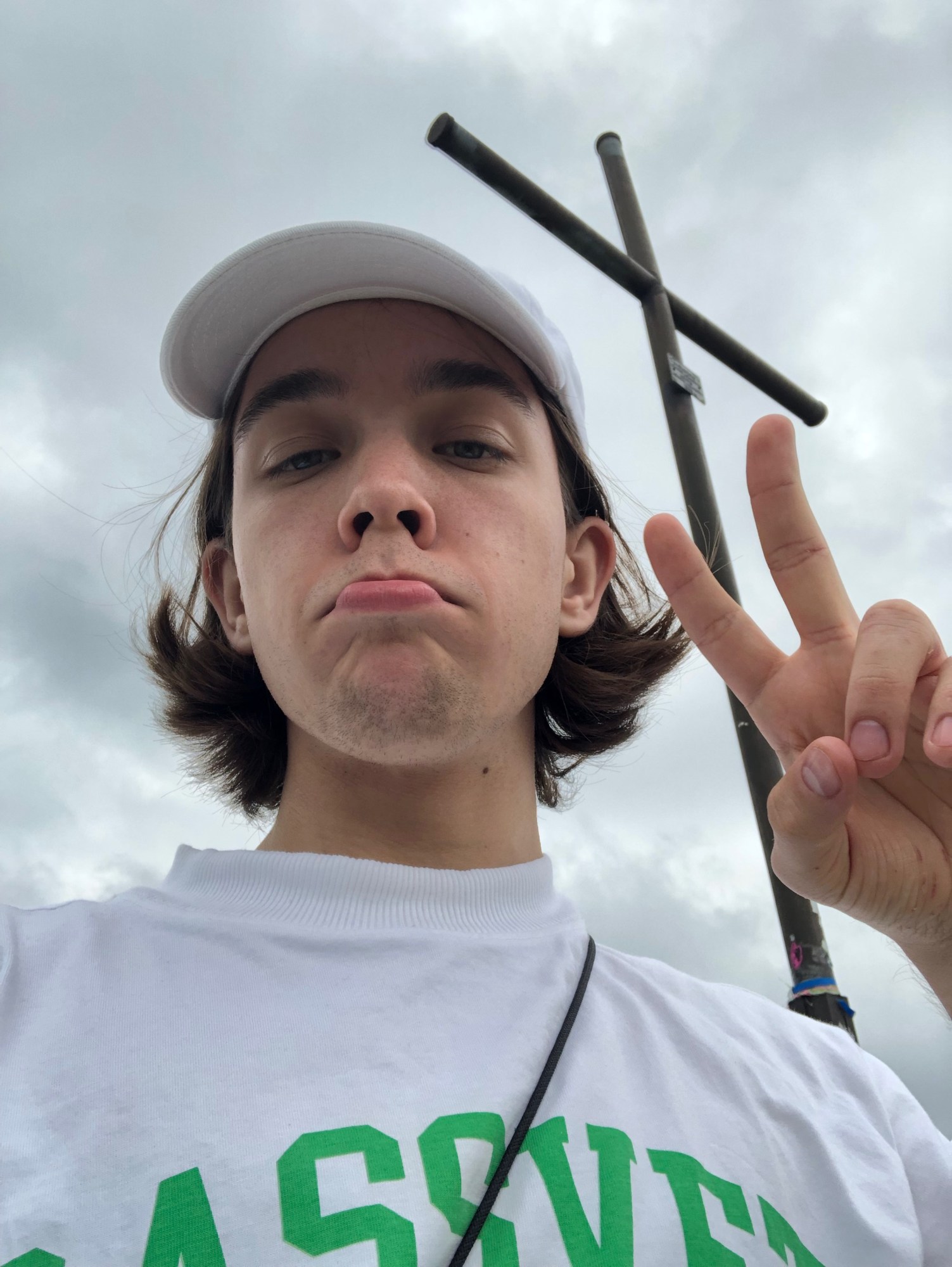
Artem Pylypenko, stylist
Where are you currently? Are you and your loved ones safe?
Under the present conditions the concept of safety has lost its meaning. Until the very last moment, I believed that everything would be resolved as quickly as possible, and so I took shelter in the Kyiv metro. However, on the 10th day of the war, a rocket landed near my house and so I decided to leave for Western Ukraine. My family and partner were forced to go abroad and I am left alone, trapped in a horrible dream from which there is no escape.
How has the war affected your personal situation? And how has it affected your business?
It is worth remembering that the war has been affecting me not just since February 24th but for the past 8 years. Ever since 2014, when I was still in college, I’ve been terrified by what has taken place in Crimea and Donbass. Now, however, questions of injustice play a secondary role, and concern for loved ones and the Ukrainian people comes to the forefront. I, and many of those around me, have lost every possible chance to work; this started long before the war even began. Constant rumours and news reports about impending war from foreign media sowed panic and almost completely paralysed the entire creative industry. This has left me with no money, no opportunities, and no plans of any kind.
Before the war, what did your day-to-day look like? And what does it look like now?
The last time, when I got up at 5am, was in the peaceful Carpathian Mountains to start shooting with my photographer friends Synchrodogs. On February 24th, at the very same time, I woke to the sound of rockets flying and peaceful cities being bombarded. Now every night is accompanied by the sounds of sirens, gunfire and explosions. The scariest thing for me is an awful loop of dreaming about being woken up by the sound of sirens and running to a bomb shelter, and then actually waking up in a sweat and having to repeat the nightmarish scenario in real life.
What tangible support can the global fashion community offer the Ukrainian fashion community at this time?
Fashion has always been a tool to build relationships in society and now is the time to really use this ability. For me personally, the best example has been Demna. He managed to convey our feelings both very movingly and accurately. I hope many more designers will try to process the events of these times and express this creatively. They should understand that you move more people with genuine attempts at creative work than with another basic post about financial support.
What support do you think the Ukrainian fashion community will need to rebuild?
My biggest dream is that when I next come to Dover Street Market, Le Bon Marché or any other big-name department store or boutique, that I see labels marked with Made in Ukraine. Not only on the products of Ukrainian designers, but also on the clothes of big brands. We have amazingly talented seamstresses, pattern makers, tailors and other masters of their craft who need support outside Ukraine. Our photographers, stylists, makeup artists and designers – who did not graduate from an art academy in London or Antwerp, but have their own unique, overlooked perspective – need European and American agencies. We need more attention from the media, both in terms of their coverage and in their employment of our editors and contributors. I dream of one day seeing the Jacquemus show in the Ukrainian sunflower fields. With a clear, peaceful sky overhead and an all Ukrainian team working on it behind the scenes.
Ivan Frolov, founder and creative director of Frolov
Where are you currently? Are you and your loved ones safe?
Right now, I’m in central Ukraine with my family, where we feel relatively safe. Same for my team, half of them are now in different corners of Ukraine, and the other half remained steadfast and stayed in Kyiv defending it.
Before the war, what did your day-to-day look like? And what does it look like now?
Before the war, my mornings regularly started at 5am with training. Then I was heading straight to the studio and production and worked there until the night came. In the last few weeks before the full-scale invasion, we were in the active phase of preparing a release of our new Bridal collection. It was supposed to be a large international project, where an amazing artist of Ukrainian origin was to arrive from New York to Kyiv to shoot it. Meanwhile, we were doing research on the history of Ukrainian sexuality, as our next collection, which was to be released in September, was dedicated to this theme. And that’s without mentioning our future collaborations and projects we were having in parallel.
After the war started, I’ve lost track of days and nights. It seems that like 100 years have passed, but at the same time, it looks like one terrible day. Even though I’m relatively safe, when I hear the sirens sound, I have to go to the bomb shelter. It happens even at night. The tensions rise with each day. Meanwhile, I’m doing volunteer tasks like fundraising for the production of bulletproof vests for the army, and also on some operating and communications work for the brand.
Is your business operating in any way? If so, have you changed the focus of your work?
All our production is still on hold. Till a few days ago we could only operate with our stock which we had in LA. But we have since found the opportunity to deliver some samples from our studio in Kyiv to Western Ukraine, and now we are trying to send them to our partners in Paris and London.
Our website also works and people support us in making orders! But we’ve warned everyone that production and shipping will only start when the situation stabilises, and we’ll have the capacity to do so. Also, right now, we’re trying to launch international projects to accumulate funds to provide financial support to our employees, as they are currently unable to manufacture clothing.
Despite all this, though, we all have changed our daily work. Our director constantly volunteers at the border and helps with humanitarian aid throughout Ukraine; our PR is actively fighting in the information frontline; our managers are accumulating resources from around the world to find funds for various humanitarian and military needs and to provide a financial base for our employees.
What support do you think the Ukrainian fashion community will need to rebuild?
I think that we really need to change a narrative here. From now on, and forever, I want everyone to know that Ukraine has nothing to do with Russia. We still see a lot of such rhetoric in the art and fashion world.
Speaking of the personal experiences of people in our team who are in Paris right now, they’ve been extremely shocked when French institutions, galleries and the like try to stage events and panel discussions about Ukraine and invite Russian representatives. A lot of people in Europe didn’t even know the name of our capital – the capital of the biggest country in Europe. And those are the results of an imperialistic and colonial past. Through all our history, we’ve fought to be independent and free, and we have our voice. We don’t need any dialogue now, we just want Russia to let us go for good. Don’t mix us, don’t unite us. If you want to support Ukraine, it is important to make Ukrainian projects about Ukraine.
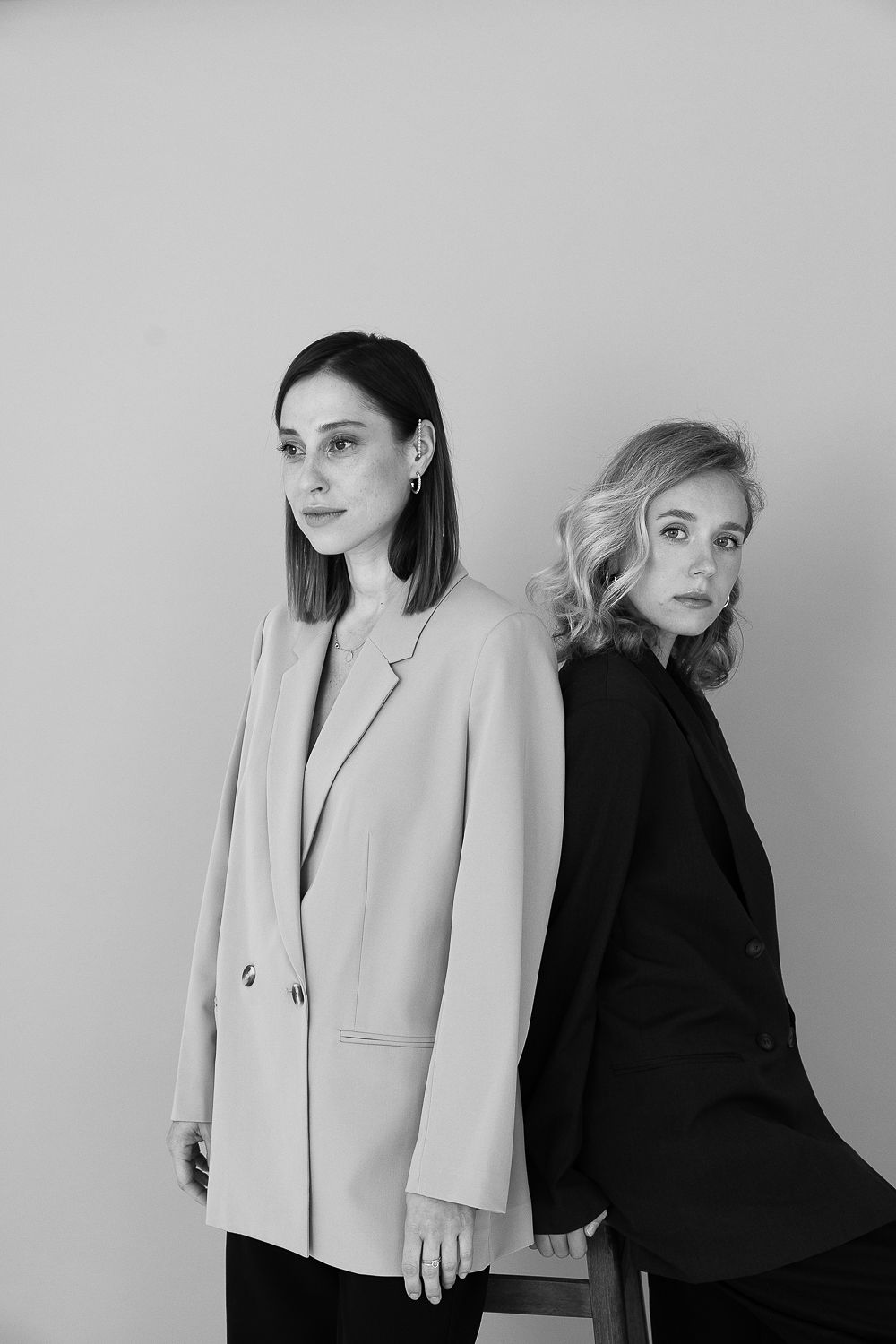
Natasha Kamensaka & Maria Gavryliuk, founders of GUNIA Project
Before the war, what did your day-to-day look like? And what does it look like now?
Before the war, we had a life. We were just working on a spring collection planned for March 8th, developing sketches and shooting the items. Every day was a flood of new ideas, projects and lots of fun within the team. We never released the collection.
Now everyone is looking for a place to stop and wait for the end of this catastrophe. Someone is constantly on the road to find a shelter, someone is moving from apartment to apartment, because they can only stop for a few days. We want to go home! We want to live within our walls and have hope for the future.”
What action do you want to see from the global fashion community?
We all see and are incredibly thankful for the support from the world and the willingness to help every Ukrainian. We are so grateful to all the areas that support us and we ask you not to stop. We also feel that fashion is a powerful platform for people who have the opportunity to create and speak up. We ask and urge to hear Ukraine and the brands through which it speaks.
There are so many wonderful examples on how the fashion industry can make a statement — starting from the Balenciaga show which brought tears to our eyes, to the amazing LVMH donation. We’re afraid of trying to list all of the brands — as there were so many who were extremely supportive.
There are so many things the fashion community could do: raise awareness, co-create with fashion brands from Ukraine, helping them to stay alive, and also share a message. They can raise money for the army, children or any other crucial things at the moment. Here’s a useful link. Overall, help preserve what we have been building for centuries, not just for 30 years of independence.”
What support do you think the Ukrainian fashion community will need to rebuild?
In our opinion, the fashion business and Ukrainian brands are now one of the most important components for the Ukrainian economy. We feel that this component may not be a priority for the people during the war, but it is a strong area that will help the state to revive.
We think that information, support in promotion and support in attraction of foreign clientele would be amazing. Not only to help support the economy of fashion, but also to strengthen our right to our culture and creativity which the invaders are actively trying to ruin. We know that Ukrainian fashion brands were beloved even before and we’re so thankful to the international community for that. We hope that very soon we will create even more amazing things under peaceful skies.
What is your message to the world? What do you most want people to know about what’s currently taking place in Ukraine?
We want the whole world to know that genocide is happening in Ukraine! The Russian Federation wants to completely destroy our people and therefore has already violated all the rules of war. They specifically drop bombs on places where civilians are hiding. For example, Russian soldiers dropped a bomb on a theater in Mariupol, where 1,500 women and children, pregnant women and the elderly were hiding. The word “KIDS” (Ukr: “ДІТИ”) was written in large letters around the theater so that every pilot could see that people were hiding in that place just to survive. They have been keeping the city under siege for more than two weeks already.
They are blocking the humanitarian corridors, shooting the civilians, robbing our houses and killing the families inside. Atrocity is happening in every spot where the foot of the Russian soldier lands. We would love for the world to know that the Ukrainians are tough and they’re fighting back with all they have. But we need all kinds of support, including information.
We can also share links to resources with relevant news and updates which was created by the Ukrainian team and is called “Now in Ukraine” — people can follow them on Twitter, and journalists can subscribe to the RSS feed to receive constant updates and to know what’s really happening on the ground.
And last, but not least, we want everyone to know how thankful we are for anything you do to help us through this nightmare!
